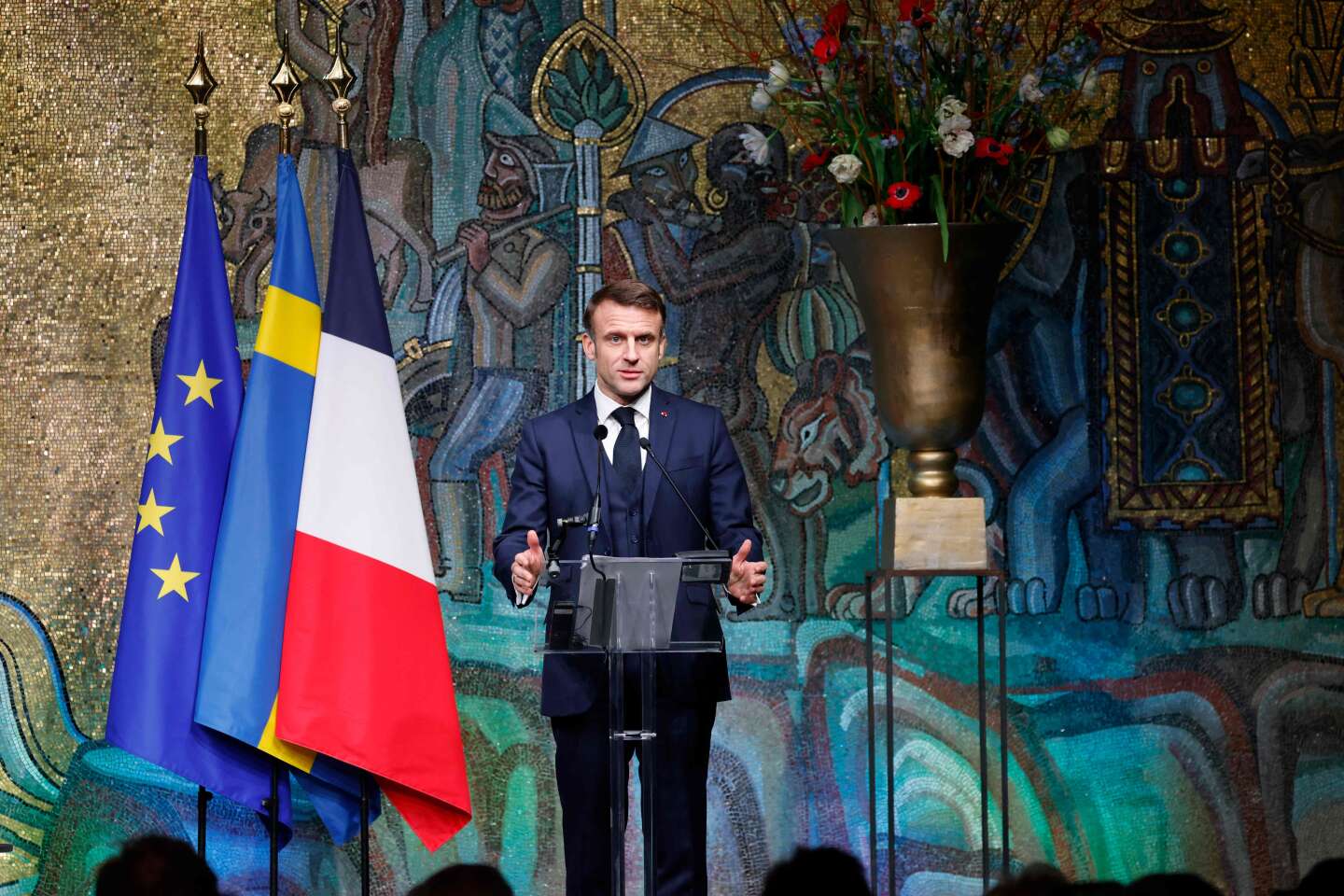


A phrase uttered by Emmanuel Macron on January 30 in Stockholm has been stirring up political opponents and Twitter for days. Nothing new, so far, from a president who is talkative to the point of excess. Except that this time, the most interesting thing wasn't what he said, but the question it answered and the commotion it caused because it's about a serious, sometimes terrifying subject: nuclear deterrence, which has suddenly become a burning issue once again in a conflict-ridden international context.
On January 30, the French president, on a state visit to Sweden, visited the Karlberg Military Academy. A Swedish officer asked him: "France is in possession of a capable and robust naval force, additionally it's the only EU country with an independent nuclear force. Is there a French sense of responsibility in the protection and preservation of European security and unity regarding the development of the Arctic sea passage?"
"Definitely, yes," replied Macron. "Not in an escalatory way but [by] being alongside our allies and our European partners in order to preserve freedom and sovereignty, yes we feel there is a specific responsibility." Macron went on to recall French doctrine: "What we define as our vital interest clearly has a European dimension, that gives us a special responsibility given the deterrence capacity we have."
Over-interpreted statements
That was all his far-right opponent Marine Le Pen needed to cry "madness" at the "Europeanization of our nuclear power," as if Macron had proposed giving Ursula von der Leyen the prerogative of pushing the button. MP Bastien Lachaud, of La France Insoumise (radical left), was alarmed, meanwhile, at a "very clear break with the doctrine of French deterrence."
It was nothing of the sort. Macron's remarks had been over-interpreted, a few officials and experts put things in their place, and the issue subsided: The president had already evoked "the European dimension" of French "vital interests" in a supposedly landmark speech on the question of French strike force, in 2020 at the Ecole de Guerre.
What was new, however, was that such a question should come from a Swedish officer, a neutral country until two years ago, now in the process of joining NATO. And for French politicians to jump at the chance to condemn an alleged change in doctrine, a doctrine which, incidentally, the vast majority of their supporters are unaware of.
Russia's invasion of Ukraine and the return of all-out war to European soil have changed everything. In this new era, where confrontation has replaced cooperation, the issue of nuclear deterrence has regained its full meaning: It has regained a central place in the strategic debate, along with the new questions it raises. In 2020, the French president's proposal for dialogue on this famous "European dimension" fell flat. But, today, between Russian aggression in the Ukraine, Moscow's nuclear rhetoric and the possibility of Donald Trump's return to the White House, the issue is becoming part of the debate, as was evident in Stockholm.
You have 45% of this article left to read. The rest is for subscribers only.
